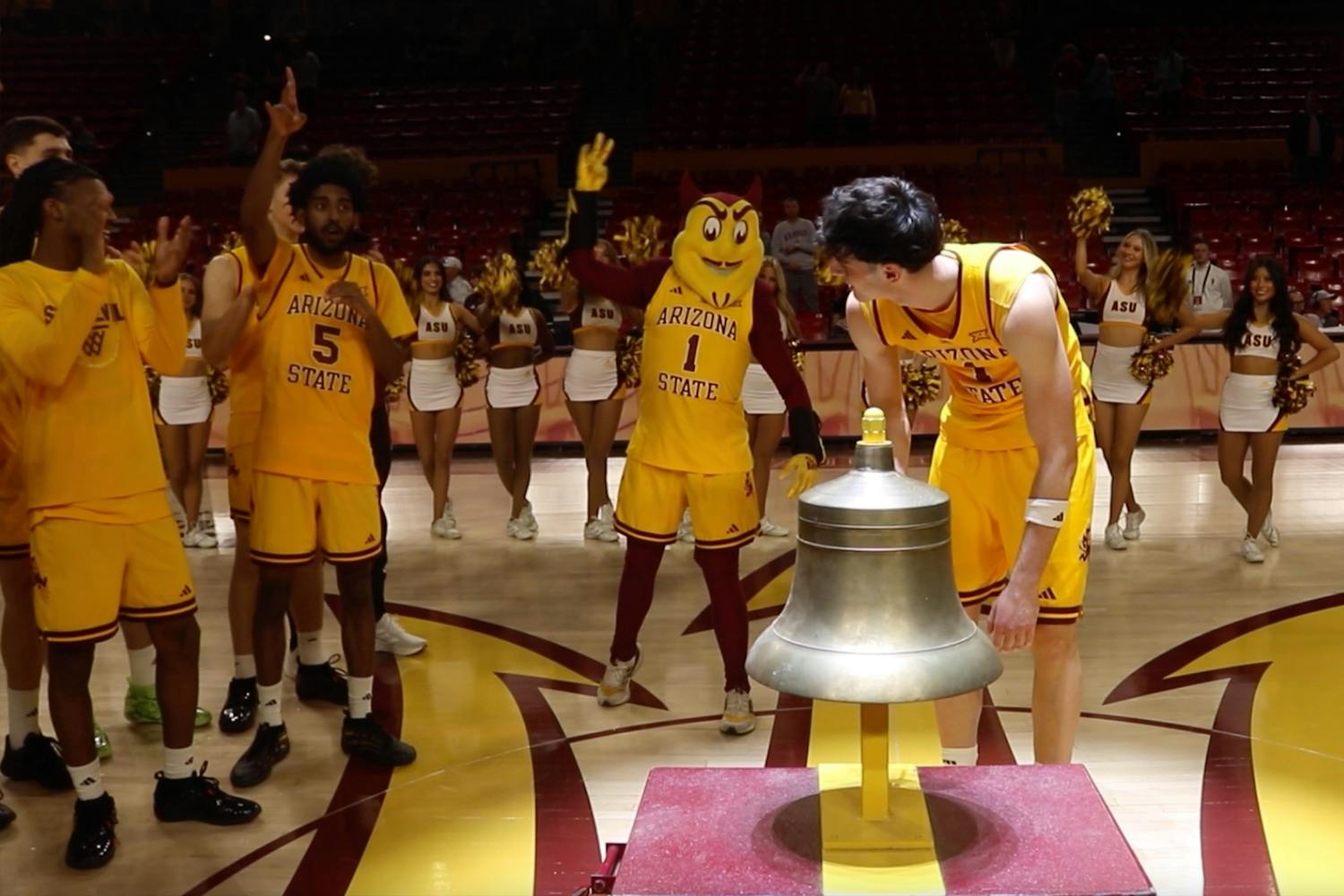With the latest classroom scandal involving scientific theory, and trials in Pennsylvania, Georgia, Kansas and California, the conflict between religion and science is again under the glare of public scrutiny. But the inherent struggle between the two disciplines is always on the minds of researchers and professors at ASU's Center for the Study of Religion and Conflict, says the Center's assistant director, Carolyn Forbes.
"Our role is to bring together energy from different disciplines to focus on problems that need scholarly attention," Forbes says. "We try to be a bridge between different opinions, faculties, disciplines and students."
The Center has devoted a day of an upcoming symposia series to a lecture titled "Evolution and Intelligent Design: Science, Religion, and American Culture," to deal with the current debate between the scientific and religious communities. Within the spotlight of the current public discussion, Forbes says evolution is again the contested theory. This time, the issue in each case is whether or not public school teachers should teach intelligent design as a scientific theory.
Forbes says that while the Center planned the series before the current media attention to intelligent design, the topic was added because "it's important to keep abreast of what's going on."
According to Forbes, the intelligent design discussion, along with the other symposium in the series, "The Pursuit of Happiness: Perspectives from Science and Religion," speak to the larger goal of the Center: to train people across fields of study to be able to ask important questions.
In the section on intelligent design, speakers will address the perceived conflict between science and religion through the lens of the current debate and American culture. For the second symposium, a panel will address the definition of happiness and how it relates to the increasing dependence of Western societies on psychotropic drugs. Both sessions will feature speeches, discussion and audience participation. Asking questions about issues such as these is especially important for students, Forbes says.
"People in the humanities need scientific literacy," she says. "All the new discoveries in medicine, and about the human body and brain, create a new set of moral issues that we need to think about. People need to ask: How do our traditions integrate?"
Forbes says such issues can be hard to question in the face of a trend of hostility toward religion on university campuses, such as the defacing of the mosque at the Islamic Cultural Center near ASU's Tempe campus in the fall of 2003.
Forbes adds there is a movement toward a restriction of academic freedom in America, citing examples such as Ward Churchill, a professor who came under fire for linking American foreign policy with September 11. The two trends combined can make discussion of religious or scientific issues difficult, she says. The Center's latest project, called "Teaching and Talking about Religion in Public," supports programs providing discussion on contentious issues. The project was recently awarded a grant from the Ford Foundation, whose "Difficult Dialogues" initiative was created "in response to reports of growing intolerance and efforts to curb academic freedom at colleges and universities," says Forbes.
Ideally, the Center's new academic programs like next week's symposia will help students and faculty interested in studying and teaching in the humanities recognize the role the discipline plays within the other sciences, and vice versa, says Forbes.
"These are the problems that will impact global politics in the future," she says. "These issues are the ones that will affect our lives."
Reach the reporter at benjamin.horowitz@asu.edu.




